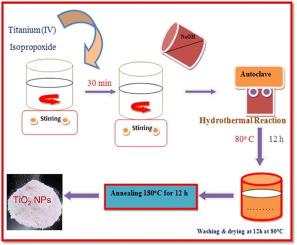Specific charge separation of Cd doped TiO2 photocatalysts for energy applications
Abstract
Titanium dioxide (TiO2) nanostructures are well known for their excellency in photocatalytic activities. In this work, additive-free and Cd metal ion - incorporated titanium dioxide (TiO2) nanoparticles have been prepared to employ a facile route of synthesis using a hydrothermal method. Metal-metal nanocomposites have been synthesized by incorporating cadmium (Cd) with the appropriate amount of TiO2 nanoparticles. The properties of the derived materials had been investigated by employing various characteristic tools such as various techniques, including X-ray diffraction (XRD), Scanning electron microscopy (SEM), Fourier transform infrared spectroscopy (FTIR), UV–visible absorbance spectroscopy (UV–vis), and photoluminescence spectroscopy (PL) are all examples of advanced imaging techniques, that may be used to study materials. Using a method known as a vibrating sample magnetometer, we measured the magnetic properties of bare and Cd-doped TiO2 nanoparticles. The investigations on crystalline nature of samples are agreed well with the standard crystalline features of TiO2 nanoparticles. Emerged grain sizes have been estimated for all samples of pure and additive incorporated TiO2 samples. Morphological characterization revealed that different particle features varied with the compositional changes. Spectral and optical absorption spectra of the prepared nanoparticles ensured the yield of derived TiO2 nanoparticles with the additive component. An evaluation of the photocatalytic activity of Cd doped TiO2 nanoparticles under UV irradiation was made using the methylene blue (MB) degradation method. The photodegradation efficiency were studied under visible light which confirms that the material is gifted one for water-treatment technologies to meet the rising clean water shortage.


 求助内容:
求助内容: 应助结果提醒方式:
应助结果提醒方式:


